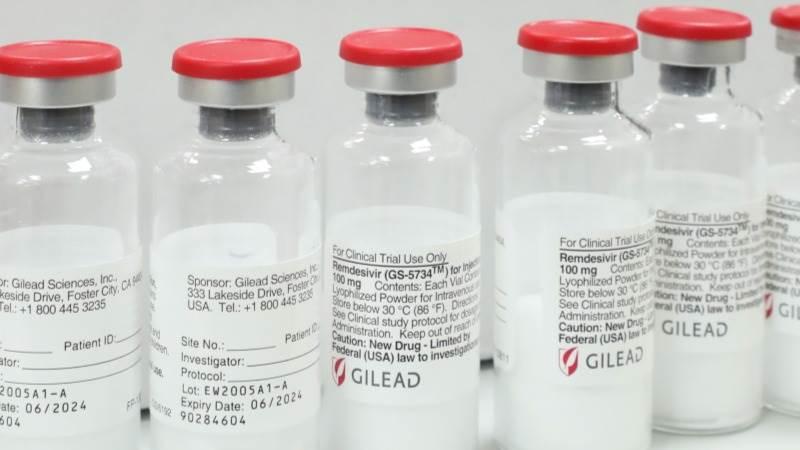WHO Mega Trial Results Out: Remdesivir, Interferon Fail to Prove Effective

It’s about a year now since COVID-19 started, and even now we don’t have a specific drug targeted to treat the disease or the SARS-CoV-2 virus, the causative agent. At max, doctors are recommending some other drugs already used for other diseases re-purposed to treat COVID-19.
Combinations of some anti-viral and anti-malarial drugs being re-purposed to treat the disease were also doing the rounds. Remember US President Donald Trump advocating hydroxycloroquine, the anti-malarial drug, to treat COVID-19 and the concomitant depletion of stock of the drug in many countries?
However, to ascertain some degree of scientific validation of re-purposed drugs, the World Health Organisation or WHO undertook a mega trial of four such drugs in March. The global scaled trial was named SOLIDARITY. In this unprecedented effort, a robust collection of scientific data was the main aim of WHO. The study was planned in a simple manner so that a hospital, which has been overwhelmed by patients, can also take part in it.
Interim results of the biggest study got published recently and these are not very exciting. The results are uploaded in the pre-print server medRxiv ahead of the planned publication in the New England Journal of Medicine.
None of the four drug/drug combination taken in the SOLIDARITY trial was found to be effective in reducing mortality, not even the much-hyped anti-viral drug Remdesivir. The trial enrolled over 11,000 patients in 400 hospitals in 30 different countries.
The pre-print paper reads: “These Remdesivir, Hydroxychloroquine, Lopinavir and Interferon regimens appeared to have little or no effect on hospitalized COVID-19, as indicated by overall mortality, initiation of ventilation and duration of hospital stay. The mortality findings contain most of the randomized evidence on Remdesivir and Interferon, and are consistent with meta-analyses of mortality in all major trials.”
The SOLIDARITY trial allocated 2,750 patients with Remdesivir, 954 with hydroxychloroquine, 1,411 with Lopinavir, 651 with Interferon and Lopinavir combined, 1,412 with Interferon only and the rest 4,088 with no study drug.
For Remdesivir, 11% of the patients that received the drug died in comparison to 11.2% in a control group that had approximately the same size as the Remdesivir group. On the other side, another trial study was conducted in the US which had Remdesivir applied to 1,000 patients. The study reported that the application of the anti-viral drug led to quick recovery in some patients, however, the mortality rate was not significantly different when compared to a control group.
“This trial doesn’t help remdesivir, that’s for sure. It’s not a dead duck as much as hydroxychloroquine, but it certainly is not the hope that was initially signalled”—commented Eric Topol, director of the Scripps Research Translational Institute in a statement to journal Science.
Gilead Sciences, the manufacturer of the anti-viral drug, on the other side, raises apprehensions on the WHO study. In a statement, the company says: “The trial design prioritized broad access, resulting in significant heterogeneity in trial adoption, implementation, controls and patient populations.”
However, what needs to be mentioned in this context is that Gilead recently signed a billion-dollar deal with the European Commission to supply the drug for another six months.
Apart from Remdesivir, another disappointment was that for Interferon beta. The mortality rate for 2,050 people that received the drug was 11.9% in comparison to a control group with mortality rate of 10.5%. Previous studies, however, reported that Interferon may be useful if administered early on, not when a patient gets deteriorated to the level of being hospitalised.
The SOLIDARITY trial study that consisted of 30 countries included India, along with Argentina, Peru, the Philippines and Spain. The trial, in near future, plans to include other treatment, therapies and drugs that could be re-purposed to treat COVID-19, for example it may include Acalabrutinib, a cancer drug.
Get the latest reports & analysis with people's perspective on Protests, movements & deep analytical videos, discussions of the current affairs in your Telegram app. Subscribe to NewsClick's Telegram channel & get Real-Time updates on stories, as they get published on our website.














